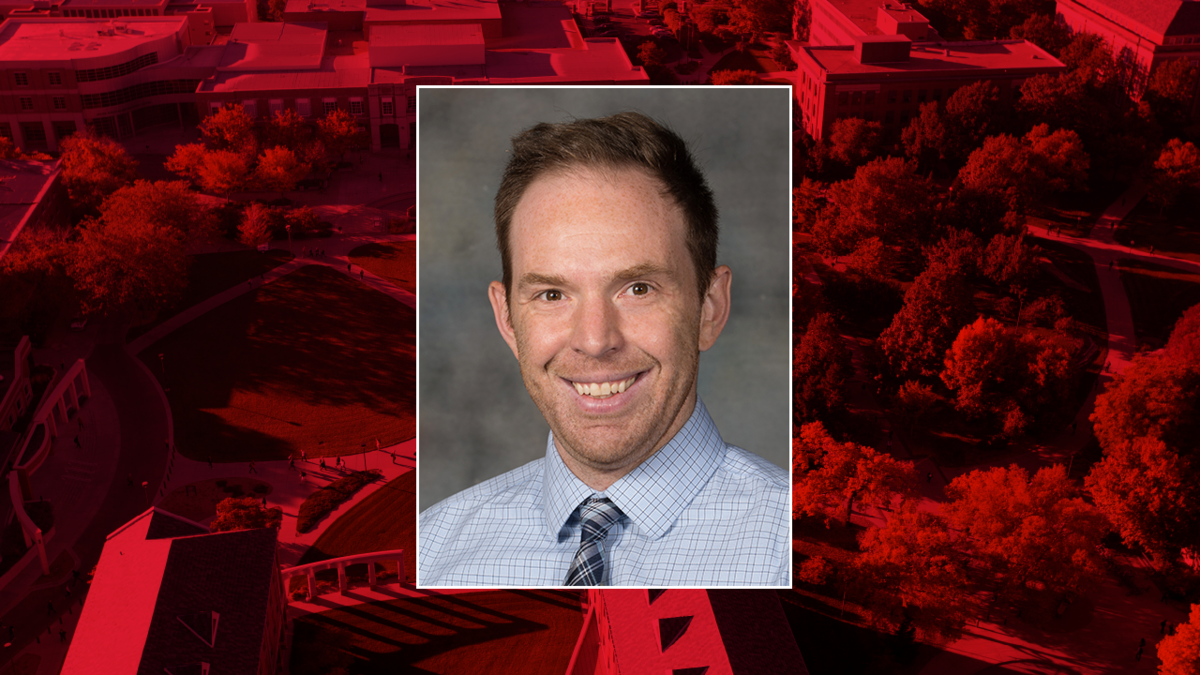
With an eye on starting her future and a desire to learn more about Nebraska, Husker Emma Schmidt is spending her summer assisting K-12 youth in Scottsbluff.
Hailing from Bridgman, Michigan, the sophomore is one of 65 University of Nebraska–Lincoln students participating in the Husker After-School and Summer Learning Opportunities (HALO) program. A collaboration between the University Honors Program, Student Affairs, Nebraska Extension and Beyond School Bells, HALO is designed to give university students a chance to help youth whose learning has been interrupted by school closures due to the global pandemic. The program is made possible through CARES Act funds provided to the university.
Prior to this summer, Schmidt had never ventured west of Lincoln. She decided to change that through the HALO program, selecting to serve in the Panhandle Research and Extension Center as an opportunity to experience rural Nebraska and scout potential locations for her dream farm.
Despite living nine hours from close friends or family, Schmidt is enjoying pivotal learning opportunities, friendly faces and the rural beauty of her summer home.
“My mom and I were taking Highway 26 into Scottsbluff, and we were going through these rolling hills and contemplating whether or not we could pull over for a few hours just to take in the scenery,” Schmidt said. “It’s beautiful.”
Schmidt can see the breathtaking Scotts Bluff Monument every day when she walks into work at the Panhandle Research and Extension Center. She’s also enjoyed meeting Panhandle residents.
“As for the people out here, they’re some of the friendliest people I’ve met,” she said. “I’ve done lots of walks around the neighborhood, and everyone’s like, ‘Oh, hi, how are you doing,’ and it’s just not something that a lot of people in Michigan do very much.”
An animal science major focusing on animal management and herd production, Schmidt envisions opening an education-based farm.
“It would allow kids who don’t have the financial means, or maybe don’t have a place to keep an animal, to show at fairs and use the farm as a place to learn about agriculture and what it’s like living on a farm,” she said.
Schmidt chose to attend Nebraska because of the unique opportunities it offers, such as her minor with the Engler Agribusiness Entrepreneurship Program, which gives her hands-on experience to pursue her dream. A resident assistant in her residence hall recommended she apply for the HALO program, which is giving her opportunities to learn skills outside of her major.
“My job here is to put on different 4-H workshops for kids to come and learn more about different topics,” she said.
For example, Schmidt organized and ran a mindfulness workshop for youth ages 5-7. The students did yoga and worked with modeling clay and zen gardens.
One thing she’s learned through this position is how to write lesson plans that are engaging and teach students valuable lessons.
For example, in some workshops, she wants students to learn the history behind and future uses for her activities.
It’s taking basic life skills a step further, so they can be used after leaving 4-H.
“Those kinds of little skills are extremely beneficial, but also 4-H is based on a positive impact and a positive learning experience,” she said.
Schmidt’s dedication to learning hasn’t gone unnoticed.
“One time, a mom pulled me off to the side and went, ‘When you pulled in, my daughter went, oh my gosh, Miss Emma is here,’” she said. “That kind of impact is something that I want to give as many kids as I can. I want to make sure that they have that positive role model in their life.”
After working with HALO, Schmidt sees 4-H and Nebraska Extension as an opportunity to work at a job she enjoys before opening her farm. As a first-generation farmer, Schmidt faces the challenge of paying for and obtaining the animals and supplies she needs, especially at an affordable rate for her future students.
“I’ve always been looking for the connection of ‘OK, after college what workforce am I going to go into and what job am I going to have,’” Schmidt said. “This position with HALO has allowed me to see that there is a connection. After college, you can come work for the extension office, and then while you’re working for the extension office, start building up your farm, and go from there, which is something that never quite clicked before.”
By allowing her to focus on animal production, Nebraska has offered Schmidt unique opportunities. Rather than pursuing a general animal science degree where she would learn a little bit of everything, she can concentrate on her interests.
“For example, this one class I had last semester taught us how to handle cattle, how to birth pigs, how to shear sheep, move sheep, that kind of stuff, so it gives you more of a hands-on experience,” she said.
Overall, Nebraska has provided Schmidt with numerous hands-on learning opportunities that directly connect to her future through programs such as Engler, her focus in animal production and HALO.
“The HALO program showed me this opportunity was out here, and so far, it’s been a great summer. I’ve enjoyed getting to know some of the kids out here and expanding my knowledge of different species and different activities, as well as bringing in new ideas to the community,” Schmidt said.
Six other HALO mentors are working with Nebraska Extension this summer:
Honoria Clarke – working in Douglas/Sarpy County Extension; junior, biological systems engineering
Payton Flower – working in Lancaster and Gage County Extension; senior, agricultural economics
Abigail Langdon – working in Platte County Extension; junior, agribusiness
Grace Lowe – working in Cass County Extension; sophomore, English
William Wilton – working in Platte County Extension; junior, secondary family and consumer sciences education
Ina Yarmolyuk – working in the Nebraska 4-H Office and Lancaster County Extension; senior, child, youth and family studies







